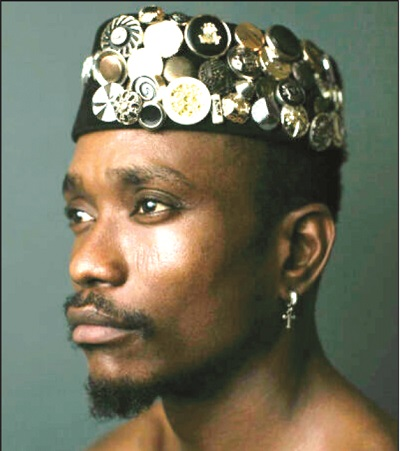The Tradition of Bride Price: A Reflection on Autonomy and Ownership
Quote from Oladosun Joshua Segun on August 23, 2024, 11:13 PM
In a recent surge of social commentary, Nigerian singer Brymo has sparked a conversation that challenges long-held traditions and societal norms. His objection to the practice of paying the bride price is not just a solitary voice in the wilderness; it echoes a sentiment that resonates with the ongoing global discourse on gender equality and women's rights.
Brymo's stance is clear: the tradition of paying the bride price, he argues, is an antiquated practice that symbolizes the transfer of ownership over women, rather than recognizing and honoring their individuality and autonomy. This perspective is not just a fleeting thought shared on social media; it is a profound statement about the value we place on human beings in the context of cultural practices.
The bride price, historically, has been seen as a form of appreciation and commitment, a gesture that cements a union between families. However, Brymo's comments invite us to question whether this tradition inadvertently perpetuates the notion of women as property, to be bought and sold. It's a provocative thought that challenges us to reflect on the implications of our customs.
Moreover, Brymo's call for the legalization of abortion is equally significant. It is a plea for the autonomy of choice and the importance of safe healthcare for women. His advocacy for legalizing abortion on all safe levels is a stance on ensuring that individuals are held accountable for the children they bring into the world, and that no child is abandoned due to a lack of legal or social support.
These comments from Brymo are not just about bride price or abortion; they are about the broader issues of autonomy, ownership, and the value of human life. They are a call to action for legal and social reforms that recognize the rights of individuals to make choices about their lives and bodies without the shadow of ownership or control.
As we ponder on Brymo's words, we are reminded that the journey towards equality and autonomy is ongoing. It requires us to continually evaluate our traditions and practices, to ensure they align with the principles of respect and dignity for all individuals. It's a conversation that is as necessary as it is uncomfortable, for it pushes us to confront the disparities that exist and to work towards a more equitable society.
Brymo's objections are a catalyst for dialogue, a starting point for a deeper examination of how we can honor individuality and autonomy within the framework of our cultural heritage. It's a discussion worth having, and one that could lead to transformative change in how we view and value each other in society. Let's keep the conversation going. What are your thoughts on the tradition of bride price and the issues raised by Brymo? Share your perspectives and let's engage in this important discourse.

In a recent surge of social commentary, Nigerian singer Brymo has sparked a conversation that challenges long-held traditions and societal norms. His objection to the practice of paying the bride price is not just a solitary voice in the wilderness; it echoes a sentiment that resonates with the ongoing global discourse on gender equality and women's rights.
Brymo's stance is clear: the tradition of paying the bride price, he argues, is an antiquated practice that symbolizes the transfer of ownership over women, rather than recognizing and honoring their individuality and autonomy. This perspective is not just a fleeting thought shared on social media; it is a profound statement about the value we place on human beings in the context of cultural practices.
The bride price, historically, has been seen as a form of appreciation and commitment, a gesture that cements a union between families. However, Brymo's comments invite us to question whether this tradition inadvertently perpetuates the notion of women as property, to be bought and sold. It's a provocative thought that challenges us to reflect on the implications of our customs.
Tekedia Mini-MBA edition 16 (Feb 10 – May 3, 2025) opens registrations; register today for early bird discounts.
Tekedia AI in Business Masterclass opens registrations here.
Join Tekedia Capital Syndicate and invest in Africa’s finest startups here.
Moreover, Brymo's call for the legalization of abortion is equally significant. It is a plea for the autonomy of choice and the importance of safe healthcare for women. His advocacy for legalizing abortion on all safe levels is a stance on ensuring that individuals are held accountable for the children they bring into the world, and that no child is abandoned due to a lack of legal or social support.
These comments from Brymo are not just about bride price or abortion; they are about the broader issues of autonomy, ownership, and the value of human life. They are a call to action for legal and social reforms that recognize the rights of individuals to make choices about their lives and bodies without the shadow of ownership or control.
As we ponder on Brymo's words, we are reminded that the journey towards equality and autonomy is ongoing. It requires us to continually evaluate our traditions and practices, to ensure they align with the principles of respect and dignity for all individuals. It's a conversation that is as necessary as it is uncomfortable, for it pushes us to confront the disparities that exist and to work towards a more equitable society.
Brymo's objections are a catalyst for dialogue, a starting point for a deeper examination of how we can honor individuality and autonomy within the framework of our cultural heritage. It's a discussion worth having, and one that could lead to transformative change in how we view and value each other in society. Let's keep the conversation going. What are your thoughts on the tradition of bride price and the issues raised by Brymo? Share your perspectives and let's engage in this important discourse.
Uploaded files:

